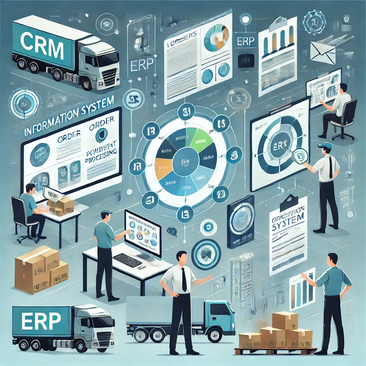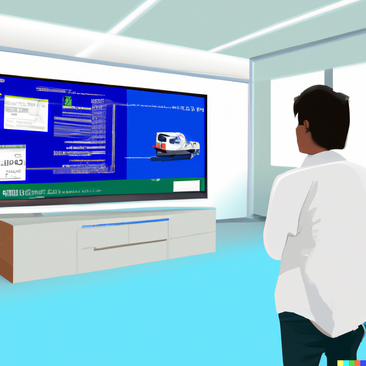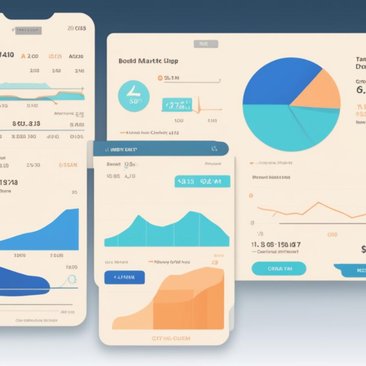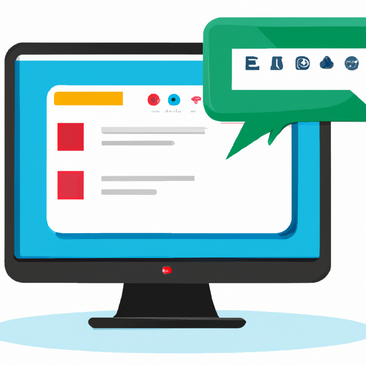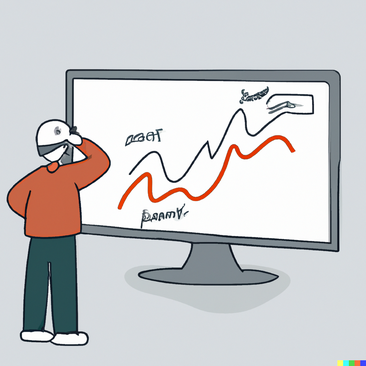Domain Description
Business solutions refer to a broad spectrum of software applications designed to support, optimize, and manage the day-to-day operations of organizations. These solutions serve enterprises of all sizes by helping them manage human resources, automate business processes, gather data insights, and ensure effective communication and documentation across teams. Key areas include enterprise resource planning (ERP), employee management, business intelligence (BI), process automation, and document management. Companies rely on these tools to streamline workflows, improve decision-making, and increase overall productivity.
What the Domain Includes
Our understanding of business solutions spans several key categories:
- Enterprise Solutions: These are comprehensive platforms that support large-scale organizations in managing various departments and functions. Enterprise solutions integrate multiple systems, enabling companies to manage everything from inventory and supply chain to customer relationships and finances.
- Employee Management Systems: These tools handle the recruitment, training, scheduling, and evaluation of employees. By automating these processes, businesses can ensure efficient HR workflows, compliance with labor regulations, and better workforce utilization.
- Business Intelligence (BI): BI tools allow businesses to collect, analyze, and visualize data to make informed decisions. From dashboards to reporting tools, BI platforms provide executives and managers with insights into their company's performance, helping them predict trends, identify opportunities, and mitigate risks.
- Process Automation: Process automation tools streamline repetitive and manual tasks, such as invoicing, inventory management, or customer support. By implementing automation, companies can reduce human error, save time, and focus on higher-level tasks that drive innovation and growth.
- Employee Feedback Systems: To maintain a healthy work environment, businesses often use employee feedback platforms to gather opinions, evaluate performance, and foster a culture of continuous improvement. These systems can also be integrated with other HR tools for a complete employee management solution.
- ERP Systems: ERP solutions consolidate core business processes into one system, offering modules for finance, HR, supply chain, and other business functions. ERP software allows organizations to have a single source of truth, facilitating better data management, reporting, and process integration.
- Document Management: Document management solutions (DMS) help organizations store, retrieve, and manage their digital documents. These systems enable version control, collaboration, and secure access to important files, which is crucial for compliance and organizational efficiency.
Common Software Solutions in This Domain
Developing software solutions for the business domain involves building highly integrated systems that support different functional areas of an organization. Common types of software in this domain include:
- Enterprise Resource Planning (ERP) Systems: ERP systems offer a single platform for managing multiple business processes, such as accounting, inventory, sales, and human resources. Popular ERP platforms include SAP, Oracle, and Microsoft Dynamics.
- HR and Employee Management Tools: These tools provide businesses with the means to handle employee onboarding, performance reviews, payroll management, and compliance tracking. Solutions like Workday or BambooHR are commonly used for these purposes.
- Business Intelligence Platforms: BI platforms, such as Tableau, Power BI, and Looker, allow businesses to visualize and analyze their data. These tools can be used to track KPIs, generate financial reports, and monitor operational efficiency across departments.
- Process Automation Systems: These solutions automate various business workflows, reducing manual input and improving efficiency. RPA (Robotic Process Automation) tools such as UiPath, Automation Anywhere, and Blue Prism help businesses automate tasks in finance, HR, and customer service.
- Employee Feedback and Engagement Platforms: To foster employee engagement and measure satisfaction, platforms like Culture Amp or SurveyMonkey allow companies to run surveys, track feedback, and evaluate workplace culture.
- Document Management Systems (DMS): Solutions like SharePoint, Google Drive, or Dropbox for Business provide a structured approach to storing, sharing, and collaborating on documents. These systems ensure that businesses have secure, accessible, and organized documentation processes.
Challenges in the Domain
Building business solutions software comes with its own set of challenges:
- Integration Across Systems: Enterprises often use multiple software systems, and integrating these tools to work seamlessly together is crucial. This requires robust APIs, middleware solutions, and strong data management capabilities.
- Customization and Scalability: Business needs are diverse, and software solutions must be adaptable to fit the specific workflows, regulations, and requirements of each organization. Furthermore, as companies grow, the systems must scale accordingly without degrading performance.
- Security and Compliance: Business software often handles sensitive data, including financial records, employee information, and proprietary business strategies. Ensuring data security and compliance with regulations such as GDPR, HIPAA, or SOX is critical to avoid breaches and legal repercussions.
- Data Accuracy and Real-Time Insights: Business solutions must provide real-time access to accurate data for decision-making. Whether through BI dashboards or ERP systems, maintaining up-to-date and reliable information is key to an organization's success.
- User Adoption and Training: Implementing new systems can be disruptive, and ensuring that employees adopt and effectively use new tools requires user-friendly interfaces, comprehensive training, and ongoing support.
- Change Management: As organizations evolve, so do their software needs. Businesses must be able to adapt their solutions to new market conditions, regulatory requirements, and internal restructuring, which can be a complex and costly process.
Conclusion
Business solutions encompass a variety of software applications designed to meet the diverse needs of organizations across industries. From ERP and employee management to BI and process automation, these tools are critical for driving efficiency, ensuring compliance, and supporting data-driven decision-making. Whether it's building custom software or integrating off-the-shelf solutions, developing for the business domain requires a deep understanding of organizational workflows, security requirements, and scalability needs.
